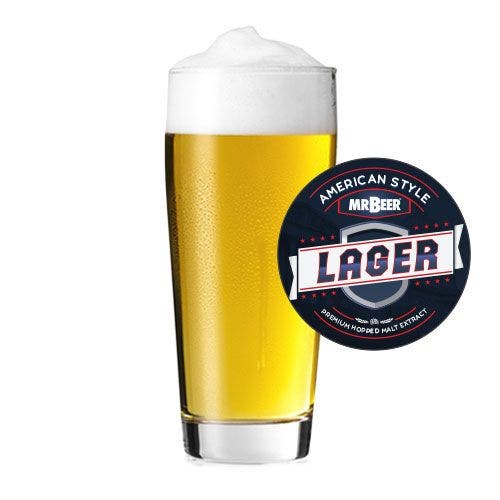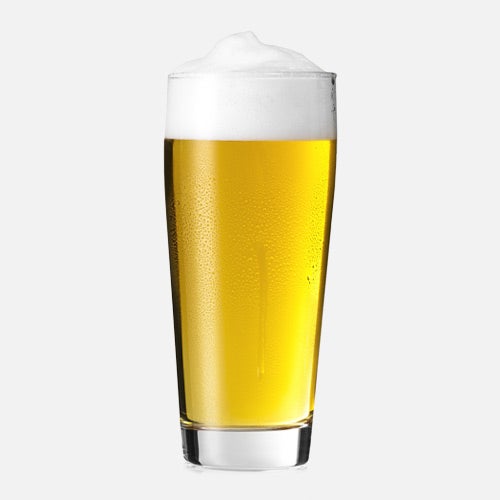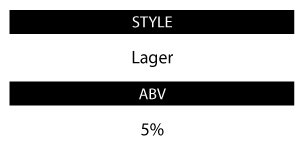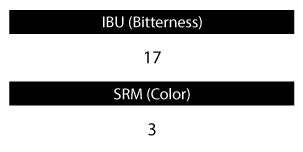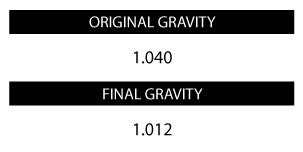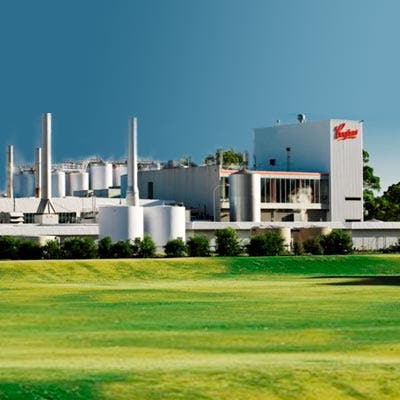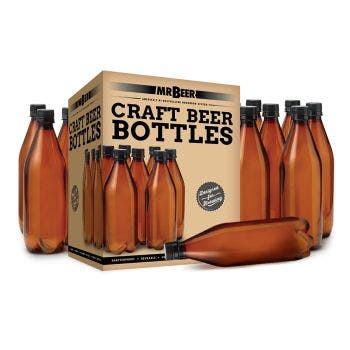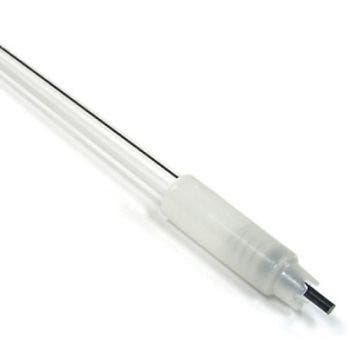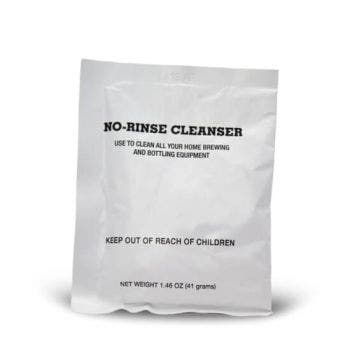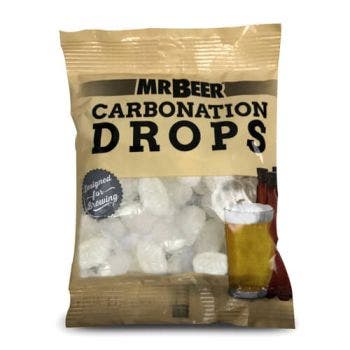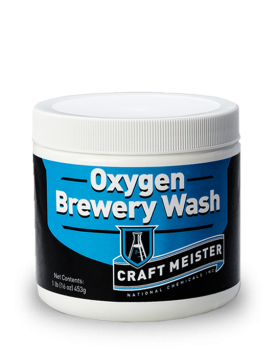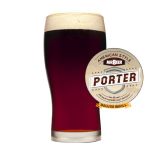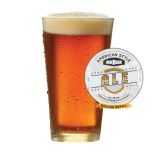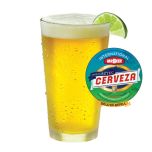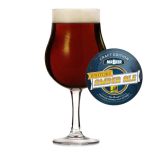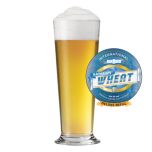American Lager Standard Refill
- If you enjoy drinking Budweiser, Samuel Adams Boston Lager, Coors, Pabst Blue Ribbon, or Rolling Rock then this is the Refill for you!
- Our Refills come with everything that is needed to brew your next batch of great tasting beer.
- All of our Refills are done brewing within 10-14 days and designed for brewing 2-gallon batches.
- Mr. Beer's brewing extract is formulated and produced by master brewers at Coopers Brewery in Australia using the highest quality, all-natural barley and hops.
- Every Mr. Beer Refill comes with Coopers proprietary brewing yeast that performs well in a wide range of temperatures.
- With this Refill, you will get our American Lager HME, 2 Bags of BrewMax Booster, 1 packet of No-Rinse Cleanser, and 1 packet of brewing yeast.
STEP 1: Sanitizing
Cleaning is one of the most important steps in brewing. It kills microscopic bacteria, wild yeast and molds that may cause off-flavors in your beer. Make certain to clean all equipment that comes in contact with your beer by following the directions below:
1. Fill clean keg with warm water to line mark 1 on the back, then add ½ pack (about 1 tablespoon) of No-Rinse Cleanser and stir until dissolved. Once dissolved, the solution is ready to use. Save the remaining ½ of No-Rinse Cleanser because you will need it for bottling.
2. Screw on lid and swirl the keg so that the cleaning solution makes contact with the entire interior of the keg, including the underside of the lid. Note that the ventilation notches under the lid may leak solution. Allow to sit for at least 2 minutes and swirl again.
3. To clean the spigot, open it fully and allow liquid to flow for 5 seconds and then close.
4. Pour the rest of the solution from the keg into a large bowl. Place your spoon/whisk, can opener and measuring cup into the bowl to keep them cleaned throughout the brewing process. Leave them immersed for at least 2 minutes in cleaning solution prior to using.
5. After all surfaces have been thoroughly cleaned, do not rinse or dry the keg or utensils. Return lid to top of keg, proceed immediately to brewing.
STEP 2: BREWING
Brewing beer is the process of combining a starch source (in this case, a malt brewing extract) with yeast. Once combined, the yeast eats the sugars in the malt, producing alcohol and carbon dioxide (CO2). This process is called fermentation.
1. Remove the yeast packet from under the lid of the can of brewing extract, then remove the label from the can. Place the unopened can in hot tap water
2. Using the clean measuring cup, pour 4 cups of water into your 4-quart or larger pot. Add your booster packs slowly while stirring the cool water until dissolved. Bring water to a boil, and then remove pot from heat.
3. Open the can of brewing extract from the bottom of the can and pour it into the pot. Stir until thoroughly mixed. This mixture is the wort.
4. Fill the keg with cold water to line mark 1 on the back. The water must be cold (ideally from the refrigerator) with a temperature of 40-55°F/4-12°C. For the best results, we recommend using bottled spring water or filtered tap water. If using any other fermenter this would be approximately 1 gallon of water.
5. Pour the wort into the keg and then bring the volume of the keg up to line mark 2 by adding more cold water. Mix vigorously with the plastic spoon/ whisk. Be careful to not scratch the inside of the keg, which could create small spaces for bacteria to grow. (If you have a different fermenter top it off with cold water to the 8.5-liter mark).
6. Sprinkle the entire yeast packet into the keg and then screw on the lid.Do not stir.
7. Allow your fermenter to sit for 10-14 days.
Store the fermenter in a cool, dark place between 68-78°F/20-26°C for the yeast to work properly. The ideal temperature range is 70-72°F / 21-22°C. After a few days the foam and activity will subside and your batch will appear to be dormant. However, the yeast is still at work, slowly finishing the fermentation process.
STEP 3: Bottling & Carbonating
After 10 days, taste a small sample to determine if the beer is fully fermented and ready to bottle. If it tastes like flat beer, it is ready. If it’s sweet, then it’s not ready. Let it ferment for 4 more days (14 total). At this point it is time to bottle. Do not let it sit in the fermenter for longer than 24 days total.
1.When your beer is ready to bottle, fill a 1-gallon container with warm water, then add the remaining ½ pack of the No-Rinse Cleanser and stir until dissolved. Once dissolved, it is ready to use.
2. Distribute the cleaning solution equally among the bottles. Screw on caps (or cover with metal cap if using glass bottles) and shake bottles vigorously. Allow to sit 10 minutes, then shake the bottles again. Remove caps and empty all cleaning solution into a large bowl. Use this solution to clean any other equipment you may be using for bottling. Do not rinse.
3. Add 2 Carbonation Drops to each 740-mL bottle. For 1-liter bottles, add 2 ½ drops; for ½-liter bottles add 1 drop. Alternatively, you can add table sugar using this table as a guide.
4. Holding the bottle at an angle, fill each bottle to about 2 inches from the bottle’s top.
5. Place caps on bottles, hand tighten, and gently turn the bottle over to check the bottle’s seal. It is not necessary to shake them.
6. Store the bottles upright and out of direct sunlight in a location with a consistent temperature between 70°-76°F or 21°-24°C. Allow to sit for a minimum of 14 days. If the temperature is cooler than suggested it may take an additional week to reach full carbonation.
Tip from our Brewmasters
After the primary carbonation has taken place your beer is ready to drink. We recommend putting 1 bottle in the refrigerator at first for 48 hrs. After 48hrs. give it a try and if it is up to your liking put the rest of your beer in the fridge. If it does not taste quite right, leave the bottles out at room temp for another week or so. Keep following this method until your brew tastes just how you like it.
This process is called conditioning and during this time the yeast left in your beer can help clean up any off flavors. Almost everything gets a little better with time and so will your beer.

